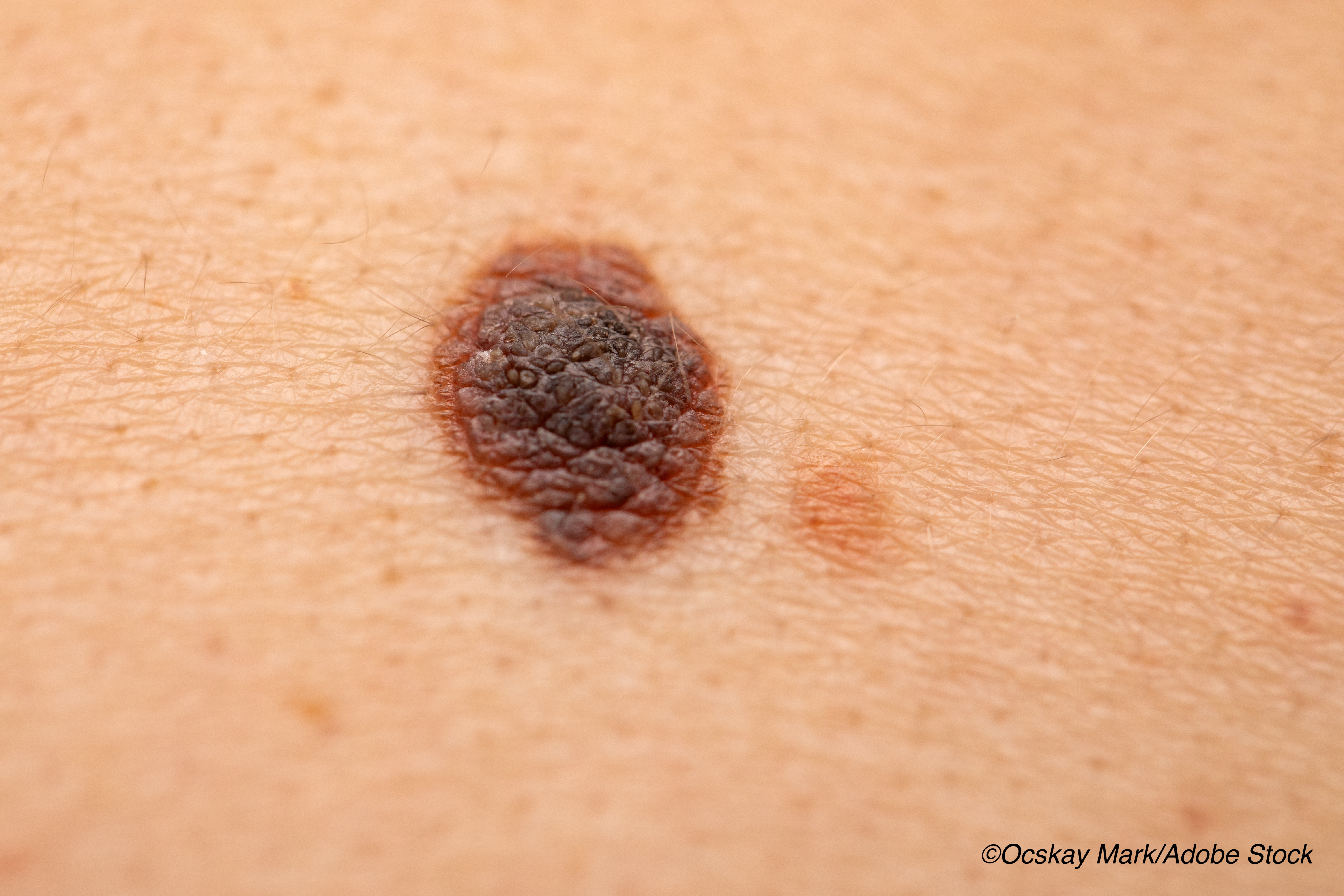Patients who were diagnosed with advanced melanoma more than doubled the progression-free survival period when they were treated with a combination of relatlimab and nivolumab when compared with those who received nivolumab alone, researchers reported.
The findings from the RELATIVITY trial were released ahead of the formal presentation at the June 4-8 virtual meeting of the American Society of Clinical Oncology.
After a median of 13.2 months follow-up, patients receiving the combination therapy achieved a median of 10.2 months of progression-free survival compared with 4.6 months for patients treated with nivolumab alone, reported F. Stephen Hodi, MD, the director of the Melanoma Center and the Center for Immuno-Oncology at Dana-Farber Cancer Institute, Boston.
That difference achieved statistical significance (HR 0.75 [95% CI, 0.6–0.9]; P=0.0055), he added.
The treatment leverages two agents, Hodi reported. “Immune checkpoint inhibitor therapy has revolutionized the treatment of patients with advanced melanoma,” he noted in his presentation. “However, novel combinations are needed to optimize the benefit-risk profile.
“Lymphocyte-activation gene 3 (LAG-3) regulates an immune checkpoint pathway, which inhibits T-cell activity, and is upregulated in many tumor types including melanoma,” he explained. “Relatlimab, a human IgG4 LAG-3-blocking antibody, restores effector function of exhausted T cells. Relatlimab in combination with nivolumab modulates potentially synergistic immune checkpoint pathways and can enhance antitumor immune responses.”
“Immune checkpoint inhibitors such as nivolumab have revolutionized the treatment of patients with advanced melanoma,” said Hodi, co-senior author of the study. “However, novel combinations of checkpoint inhibitors with other immune agents are needed to improve results. The RELATIVITY trial is the first study of a combination treatment to demonstrate a clinically important benefit by simultaneously inhibiting the LAG-3 and PD-1 pathways.”
In the RELATIVITY-047 trial, Hodi and colleagues enrolled 714 patients who had been diagnosed with previously untreated advanced melanoma. They assigned 355 patients to the combination treatment and 359 patients to nivolumab monotherapy.
The patients received 160 mg of relatlimab plus 480 mg of nivolumab intravenously every four weeks or nivolumab 480 mg alone every four weeks.
The researchers stratified the patients by level of LAG-3 expression, programmed death ligand 1 expression, BRAF mutation status, and cancer stage. The primary endpoint was progression-free survival per RECIST criteria as assessed by blinded independent central review.
At 12 months, 47.7% of the patients on the combination were free of disease progression, compared with 36% of the patients on nivolumab alone.
The additional agent did increase adverse events, the researchers reported. The incidence of grade 3/4 treatment-related adverse events was higher with the combination—18.9% of those patients reported adverse effects compared with 9.7% of the patients on nivolumab alone. There were three treatment-related deaths with the combination and two with nivolumab. Treatment-related adverse events led 14.6% of the combination patients to discontinue treatment; 6.7% of the nivolumab patients discontinued treatment due to adverse events.
In commenting on the study, Wasif Saif, MD, deputy physician-in-chief and medical director, at Northwell Health Cancer Institute, Lake Success, New York, said that “These findings demonstrate not only that relatlimab plus nivolumab is a potential novel treatment option for this patient population but also validates that inhibition of the LAG-3 immune checkpoint as a therapeutic strategy to treat cancer.”
“The results from the phase III RELATIVITY-047 trial manifested that addition of relatlimab to nivolumab resulted in more than double the median progression-free survival compared with nivolumab alone in patients with previously untreated, unresectable or metastatic melanoma,” Saif told BreakingMED.
“PD-L1 inhibitors have already been shown to improve survival in several tumor types, including melanoma,” he added. “These findings have led investigators to explore combining these agents with other immunotherapy as well as novel immune checkpoint inhibitors hoping to derive more clinical benefit to cancer patients.”
Saif added that in addition to offering a dual immunotherapy as a treatment option to patients with melanoma, the “study also validates the LAG-3 pathway as the third immune checkpoint pathway in history, after CTLA-4 and PD-1.”
Edward Susman, Contributing Writer, BreakingMED™
The study is sponsored by Bristol-Myers Squibb.
Saif disclosed no relevant relationships with industry.
Hodi disclosed relationships with Apricity Health; 7 Hills Pharma; Aduro Biotech; Amgen; Bayer; Boston Pharmaceuticals; Bristol-Myers Squibb; Checkpoint THerapeutics; Compass Therapeutics; Eisai; EMD Serono; Genentech/Roche; Merck Sharp & Dohme; Novartis; Partners Therapeutics; Pfizer; Pionyr; Rheos Medicines; Sanofi; Surface Oncology; Takeda; Torque; and Verastem,
Cat ID: 26
Topic ID: 78,26,728,791,730,105,11,26,935,192,925,172



